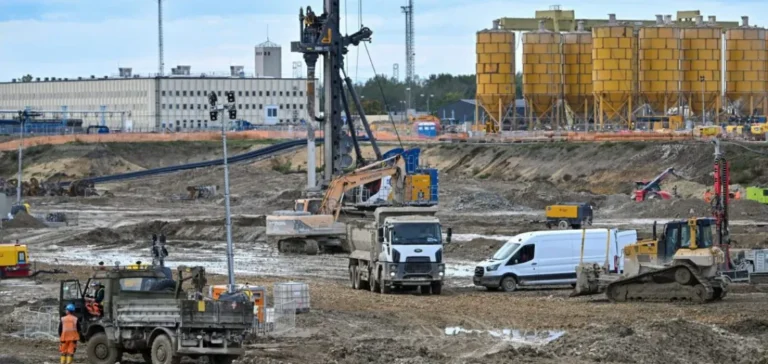The European Court of Justice has annulled the European Commission’s 2017 authorisation of Hungarian state aid for the construction of two new nuclear reactors at the Paks II facility. The ruling follows an appeal by Austria, which challenged both the direct awarding of the construction contract and the state-funded financing without competitive tender.
In its judgment, the Court found that the Commission had failed to verify whether the direct award of the contract to the Russian company Nizhny Novgorod Engineering complied with European public procurement rules. It also stated that the Commission’s reasoning in this regard was insufficient, particularly concerning compliance with EU procurement standards.
Russian-Hungarian bilateral financing under scrutiny
The agreement between Hungary and Russia, signed in 2014, provided for the Hungarian state-owned company MVM Paks II to receive full state financing, supplemented by a Russian state loan covering up to 80% of the project’s costs. The total financing is estimated at EUR10.0bn ($10.5bn). The construction contract was awarded without tender to a Russian entity as part of the intergovernmental agreement.
The European Commission had approved this structure in March 2017, focusing solely on state aid compliance under EU rules. Austria, which does not operate any nuclear power plants, filed a legal challenge against this decision. The case was initially dismissed by the General Court of the European Union in 2022, but the Court of Justice has now overturned that ruling.
Legal implications for project timeline remain unclear
Hungary responded by stating that the ruling does not affect the project’s progress. Foreign Minister Péter Szijjártó said the government continues to view Paks II as a cornerstone of national energy security, adding that the decision “neither restricts nor delays” construction. According to him, both new reactors are still scheduled to be connected to the grid early in the next decade.
Located 100 kilometres south of Budapest, the existing Paks site houses four Russian VVER-440 pressurised water reactors commissioned between 1982 and 1987. The Paks II project aims to add two VVER-1200 units of a more advanced generation. The construction licence was issued in 2022, with initial concrete pouring expected by the end of the year.
Previous legal precedents within the European Union
This is not Austria’s first legal action against a nuclear project supported by public funding in another EU member state. In 2015, it challenged the European Commission’s approval of UK backing for the Hinkley Point C nuclear project, but the General Court rejected that case in 2018. In the Paks II case, however, the Court of Justice took a different stance, highlighting the Commission’s obligation to assess procurement procedures alongside state aid compliance.






















